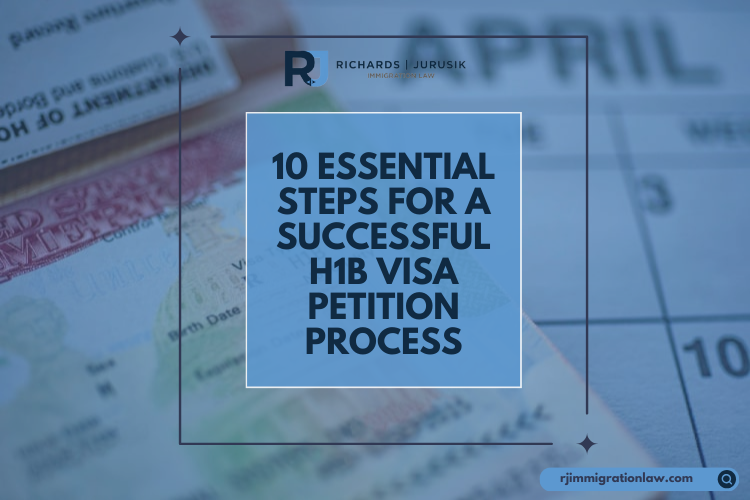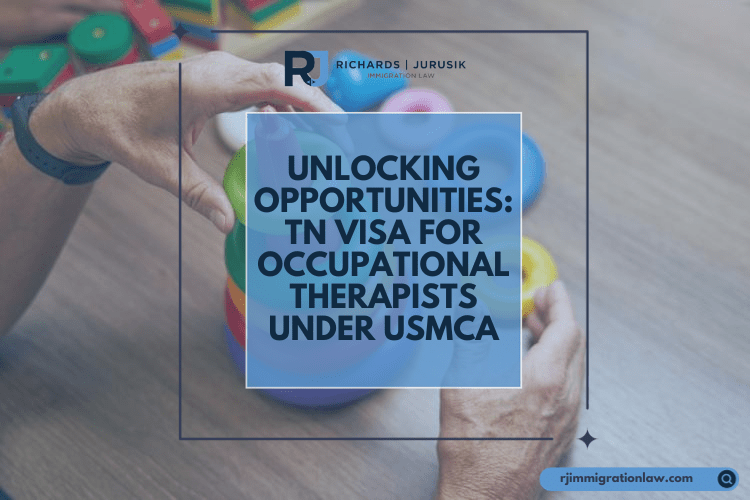Navigating U.S. immigration law to determine the most suitable visa can be daunting for a business owner who wants to expand or establish a presence in the United States. The E-2 Treaty Investor Visa and the L-1 Intracompany Transferee Visa are two prominent pathways with unique requirements and benefits. This blog post explains the critical considerations you must evaluate when deciding between E-2 and L-1 visas.
E-2 Treaty Investor Visa Overview
The E-2 visa caters to nationals from treaty countries who intend to invest in and actively manage a U.S. business. Noteworthy for its flexibility, the visa does not mandate prior managerial experience or the operation of a foreign company. However, depending on the nature of the business, a “substantial” investment in the U.S. business is required.
L-1 Intracompany Transferee Visa Overview
Contrastingly, the L-1 visa is designed for managers, executives, or employees with specialized knowledge from a foreign company seeking to transfer to its U.S. counterpart. A qualifying relationship between the foreign and U.S. entities is essential, highlighting the L-1 visa’s suitability for individuals already playing a pivotal role in a multinational corporation.
Key Factors to Consider
Treaty Country Nationality
- E-2 Visa: Exclusive to nationals of E-2 treaty countries. Check the current list to determine eligibility.
- L-1 Visa: Available to any nationality, provided the corporate relationship and individual role criteria are met.
Management Experience
- E-2 Visa: This does not require previous managerial experience. Investment control and business development are the focus.
- L-1 Visa: The applicant must prove that he or she has worked for at least one year in a managerial or executive role in the affiliated foreign company within the last three years.
Investment and Company Operations
- E-2 Visa: This visa requires a substantial investment. The U.S. business must be operational or near operational at the time of application.
- L-1 Visa: There is no investment requirement. However, new offices require a detailed business plan and evidence of business viability.
Visa Validity and Renewal
- E-2 Visa: Issued for up to 5 years, with indefinite renewals possible, subject to maintaining investment and non-immigrant intent.
- L-1 Visa: This visa is initially granted for one year in the case of a new office and up to 3 years for existing operations, with the possibility of renewal leading to a maximum of 7 years. For intermittent employees, there are unlimited extensions. After that, a transition to a green card or another non-immigrant status is required.
US Permanent Residency
- E-2 Visa: Although the E visa can have indefinite extensions, there is no direct path to a green card.
- L-1 Visa: Qualifying Owners, Executives, and Managers can obtain a green card.
Conclusion
The choice between the E-2 and L-1 visas hinges on several factors, including nationality, experience, business goals, and investment capabilities. While the E-2 visa offers flexibility and potentially indefinite stay for investors from treaty countries, the L-1 visa provides a pathway for crucial personnel within multinational companies to bring their expertise to the U.S. It’s advisable to consult with immigration experts to navigate the complexities of each visa type and align your business strategy with the most appropriate immigration path.
Whether seeking to invest anew with an E-2 visa or transfer existing expertise through an L-1 visa, understanding the nuances of each option will equip you with the knowledge to take the next step confidently in your business expansion journey.
Subscribe to Our Resources Blog
Schedule a Consultation with an Immigration Lawyer
Citations
We Can Help!
You may have questions regarding the E2 visa and the L1 Visa. We invite you to contact our team at Richards and Jurusik for detailed guidance and assistance. We aim to provide the most accurate and up-to-date information to make your immigration process smoother and less stressful. The immigration lawyers at Richards and Jurusik have decades of experience helping people to work and live in the United States. Read some of our hundreds of 5-star client reviews! Contact us today to assess your legal situation.







